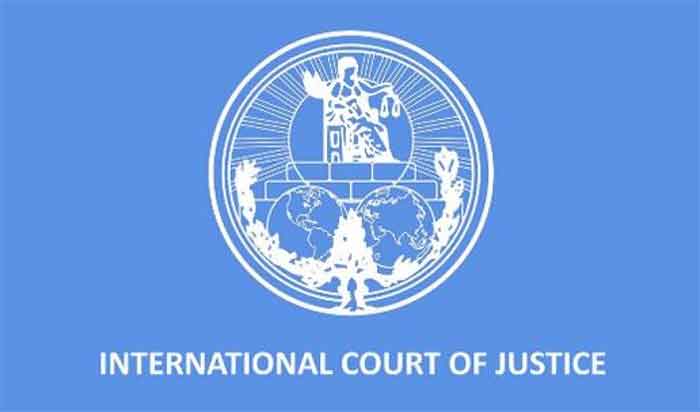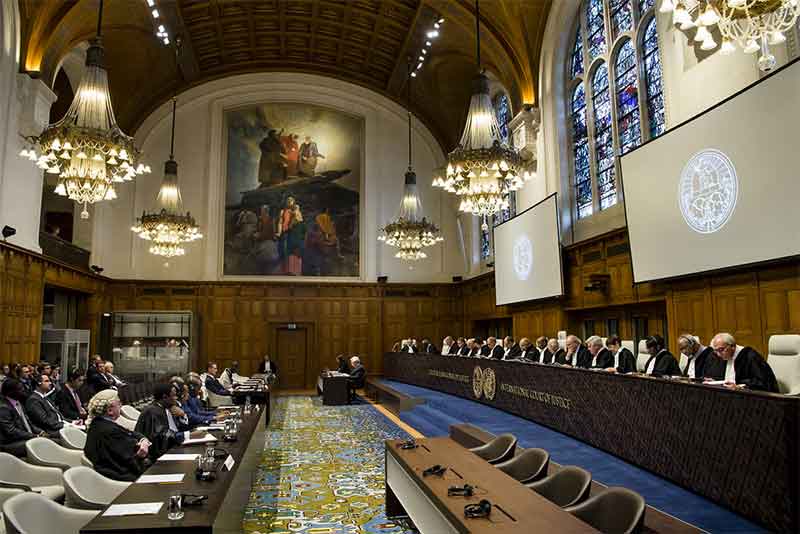
Islamic Republic of Iran (IRI) on 27 June launched proceedings against the State of Canada immediately a day prior acceding to the compulsory jurisdiction clause of International Court of Justice (ICJ), at Hague. Under the compulsory Jurisdiction provision, a State may begin proceedings against another even without negotiations a priori and even without exhausting local remedy rule of international law. Canada has already acceded to compulsory jurisdiction of ICJ way back in 1994. IRI had on the same kinds of proprietary grounds, in respect of its assets launched proceeding against Canadian neighbor, the United States (U.S.) in Certain Iranian Assets Case. The judgement in that case was delivered by ICJ on March 30, 2023, whereunder affirming U.S. stand that it (U.S.) did not violate IRI’s sovereign immunity, nevertheless, made IRI entitled for compensation which, heralded Iranian righteousness in Iranian way. Dwelling less on that dispute, both the States are claiming victory against each other in their own ways. Hardly, three months had elapsed Canada became another State in dispute with IRI before the ICJ. It is to note here that until Russian conflict with Ukraine, in February 2022, IRI was the most sanctioned State in the geopolitical order, for scores of different reasons including, importantly, for its indulgence in terrorist activities.
The present claim of IRI against Canada is on one of the delicate subjects of sovereign immunity in international law and has implications on humanitarian law as well. Canada has already severed its diplomatic ties with IRI a decade ago, in 2012, and declared it as one of the States who sponsors terrorism and terrorist activities in a diversified manner. In the wake of severance of diplomatic ties with IRI these proceedings against Canada become further important and will serve as a standard example of how International Law and its machinery is always available to an already bruised and troubled Nation.
Not looking apart that IRI being a State where government’s forces have heavily curtailed and suppressed varied rights and freedoms; including among them, of expression, association and assembly and of course different other emerging right and freedoms in the neo-liberal context of the world order. In this respect the claim of sovereign immunity endures importance particularly in the light of par in parem Non Habet Imperium which symbolizes the lack of jurisdiction with respect to sovereign equals in international law. Canada had immediately prior, barely eight days before, sanctioned seven of the Iranian judges in terms of seizing their assets for their gross and systemic violations of basic human rights in the criminal justice system of it. As Canada in its legislative, executive, and judicial documents notes that these judges have held numerous sham trials extending to the pronouncements of death sentences in number of cases.
IRI’s response, in the form of instituting judicial proceedings with respect international behaviour of Canada on the solo sovereign immunity principle assumes much significance. The sovereign immunity principle being one of the most important principles of customary international law that has been in regular contest with accepting the authority of international law per se inasmuch looking into the fundamental and sacrosanct principles enshrined in Article 2 of the United Nations Charter. Its imperturbability in the light of the facts that IRI has been declared as one of the sponsors of terrorist activities under the domestic law of Canada has further significance.
The rules of public international law which examine domestic law vis-à-vis existing customary law are to be examined an again by the ICJ. Hereinbefore, the world court has investigated the issue of jurisdictional immunities in number of other cases including, in the latest Jurisdictional Immunities of State (Germany v. Italy) Case (2012) where, the Court held in favour of Germany safeguarding its jurisdictional immunity. It can be noticed that the Court has given its observations whereby domestic law is necessarily enabler of carrying out obligations owed in international law and in particular, the rules of general principles of international law. Another example can be seen in reference to arrest warrant case of 2002 (Democratic Republic of Congo v. Belgium) where, the Court came forward to protect the legitimate legal interests of Congolese Republic. It is to be decided by the ICJ now that if the violations of sovereign immunity of IRI when no diplomatic relations exist particularly, in the light of ‘terrorist exception’ alleged by Canada really give rise to the violation of secular provisions of sacrosanct sovereign equality principle in international law.
The rule of stare decisis is said to be inapplicable inasmuch to the international cases, particularly, those decided by ICJ itself as Article 59 of its Statute clearly mentions the same. Therefore, each case decided by the ICJ cannot exclusively rely on the stare decisis as such for its determination. In the instant case the Canadian State Immunity Act, 1985, being amended in 2012 retrospectively and subsequently recently an again is put question with respect to IRI. Sovereign immunity is generally taken ground in defense of claim against the State and has been found to be invariably present in most cases decided by the ICJ. However, in the instant case it is to be investigated with different angle altogether as this is perhaps a bizarre incident where the ground of sovereign immunity is being taken by a State while instituting proceedings against another in the name of sovereign immunity and thus violating sovereign equality. There already exists a universal convention of 2004 in relation to jurisdictional immunities. The further proceedings before the ICJ in respect of this case will be of much value and significance, not only to those shouting to establish a harmonious world order but all those examining the polished lenses of international law.
Dr Mohit K Gupta, Sr. Assistant Professor, School of Law, UPES, Dehradun
https://www.upes.ac.in/schools-faculty/law/dr-mohit-kumar-gupta










































